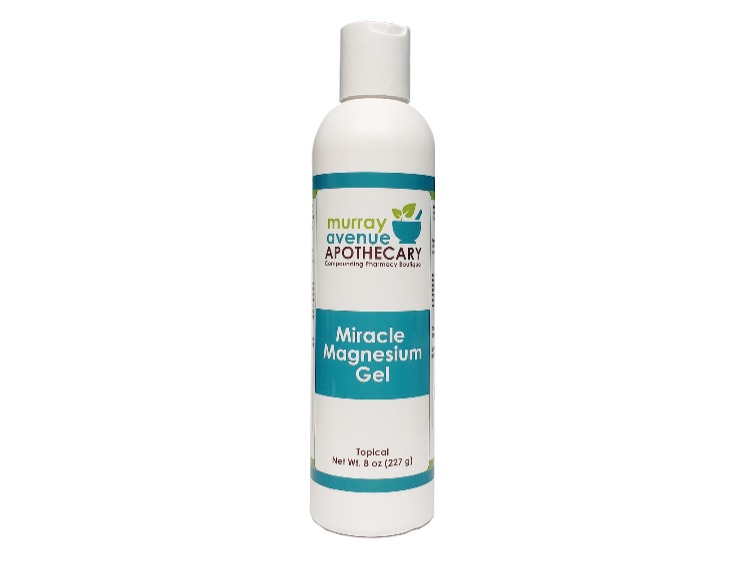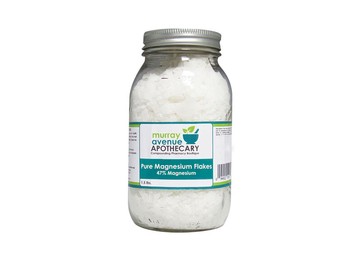MAGNESIUM…Miracle Mineral!
January 2, 2024

updated on 03/27/2025
Why Magnesium is Essential
Magnesium is a crucial nutrient that supports over 300 metabolic functions in the body. However, many people do not get enough of it, leading to various health issues.
Magnesium Deficiency in the U.S.: The Facts
- 60% of Americans do not consume the recommended daily magnesium intake.
- 19% of Americans consume less than half of the recommended amount.
- Modern diets contain 10 times more calcium than magnesium, leading to imbalances.
- 80% of the population may be deficient, yet standard blood tests often fail to detect it.
Why Magnesium Deficiency is Increasing
- Lower food quality: Magnesium levels in soil and food have declined.
- Higher toxin exposure: Environmental toxins increase the body’s need for magnesium.
- Poor absorption: Many people lack efficient magnesium absorption due to diet and health conditions.
Key Functions of Magnesium
Magnesium is vital for:
✅ Energy production & transport
✅ Protein synthesis
✅ Nerve signal transmission (brain and body)
✅ Muscle relaxation (heart, blood vessels, digestive tract, and skeletal muscles)
✅ Bone and teeth health
✅ Detoxifying heavy metals (e.g., mercury)
✅ Balancing cholesterol & lipid digestion
✅ Maintaining pH balance (reducing acidity in the blood)
✅ Neurotransmitter production (e.g., serotonin, which regulates mood)
Signs of Magnesium Deficiency
If you’re lacking magnesium, you may experience:
- Muscle issues: Spasms, leg cramps, restless legs
- Sleep problems: Insomnia
- Mental health concerns: Anxiety, mood swings
- Heart health risks: High blood pressure, angina, heart palpitations
- Cognitive issues: Poor concentration, brain fog
- Headaches & migraines
- Digestive issues: Constipation, IBS
- Fatigue & chronic pain conditions
Health Conditions Linked to Magnesium Deficiency
Dr. Linda Rapson, a specialist in chronic pain, estimates that 70% of her patients with muscle pain, cramps, and fatigue show signs of magnesium deficiency.
Conditions associated with low magnesium include:
- Mitral valve prolapse
- Migraines & chronic headaches
- ADHD & autism
- Fibromyalgia
- Anxiety & mood disorders
- Asthma & allergies
Magnesium is essential for overall health, yet most people don’t get enough. Supplementation is crucial, but the method of supplementation matters for effective absorption.
Want to learn the best way to supplement magnesium?
Absorption & Effectiveness
Oral magnesium is poorly absorbed, except in Magnesium Glycinate and Magnesium Bis-Glycinate, which have the highest bioavailability and are gentle on the stomach.
Best Forms of Magnesium for Maximum Absorption
1. Magnesium Glycinate & Magnesium Bis-Glycinate (Highly Absorbable & Gentle)
- Best for: Anxiety, sleep, muscle relaxation, nerve function
- Highly bioavailable and easier on digestion compared to other forms
- Less likely to cause digestive discomfort
2. Magnesium Citrate (Best for Constipation & Digestion)
- Helps with constipation by drawing water into the intestines
- Supports bowel regularity and peristalsis
3. Magnesium Oxide (NOT Recommended)
- Very low absorption (only 4%)
- Mostly acts as a laxative rather than providing cellular benefits
Recommended Daily Magnesium Dosage:
Orally, 5mg per pound of body weight or 100mg of ELEMENTAL Magnesium 3-4 times per day (Dr. Carolyn Dean, MD)
Topical cream 20% Magnesium Chloride can be applied directly to skin or painful areas (highly concentrated so may cause the skin to tingle).
Side Effects & Safety
- Very low toxicity potential – safe for regular use.
- Avoid magnesium oxide – only 4% absorption, leading to laxative effects.
- Use Magnesium Glycinate or Bis-Glycinate if you experience digestive issues with other forms.
- For IBS with diarrhea, use magnesium oil or cream instead of oral supplements.
Both oral magnesium and transdermal magnesium chloride have been shown to help with:
Heart & Circulatory Health
- Aids in hypertension (high blood pressure)
- Assists in stroke prevention & recovery
- Supports cardiac health
- Relaxes spastic blood vessels, improving circulation
Brain & Nervous System Support
- Improves insomnia and memory function
- Has a calming effect on the nervous system
- Helps anxiety & panic attacks by regulating adrenal stress hormones
- Supports central nervous system health, reducing vertigo & confusion
Metabolism & Detoxification
- Essential for insulin function – helps diabetes by enhancing glucose metabolism
- Removes toxins & heavy metals, including mercury
- Balances cholesterol levels, aiding heart health
- Prevents tooth decay by regulating calcium-phosphorus balance in saliva
Chronic Conditions & Pain Relief
- Reduces muscle spasms, fibromyalgia, & joint pain
- Helps asthma by reducing histamine production & bronchial spasms
- Eases bladder spasms (cystitis)
- Relieves PMS symptoms & menstrual cramps
- Supports cancer patients by replenishing magnesium lost through chemotherapy
- Improves symptoms in autism and ADHD
Why Do We Love the Beach?
The ocean provides a natural magnesium boost through:
✔ Magnesium-rich seawater
✔ Aerosolized iodine
✔ Vitamin D from sunlight
✔ Grounding from the sand
Final Thoughts
Magnesium is essential for cholesterol, glutathione, chlorophyll, insulin, DHEA, and DNA to function properly. Ensuring adequate magnesium intake improves overall health and longevity.
References
- Magnesium Oil, Ancient-Minerals.com
- Sircus M, OMD. Transdermal Magnesium: A New Modality for the Maintenance of Health.
- Dean C, MD. The Magnesium Miracle. Total Health, 29(1):32-33. www.totalhealthmagazine.com
Magnesium Facts You Need to Know:
- Magnesium is the “Lamp of Life”: Found at the core of chlorophyll, which converts light into energy in plants.
- Magnesium & Insulin: Needed for both the action and manufacture of insulin; insulin transports magnesium into cells from the blood, and low magnesium leads to insulin resistance.
- Magnesium & Heart Health: Cholesterol synthesis requires magnesium; cholesterol is vital for many hormones.
- Cancer & Infections: Low magnesium reduces DHEA levels, increasing chronic inflammation, immune dysfunction, and cancer risk (Dr. James Michael Howard).
- Antioxidant Power: Essential for producing glutathione, the body’s master antioxidant, protecting against toxins, smoking, and chemotherapy damage.
- Psychological Health: Plays a key role in reducing depression and other mood disorders.
- Cellular Distribution: Magnesium is primarily found inside cells; only 1% is outside, making serum testing inaccurate.
- Chlorophyll & Hemoglobin: Chlorophyll is identical to hemoglobin, except for the magnesium atom at the center, which is replaced by iron.
- Amino Acid Assimilation: Chlorophyll is vital for the body's assimilation of amino acids and for enzyme synthesis.
- Magnesium for Diabetics: Considered the elixir of life for those with diabetes.
- Nucleotide Maintenance: Necessary for maintaining an adequate supply of nucleotides for RNA and DNA production.
- Topical Application Benefits: Dr. Norman Shealy reports that topical Magnesium Chloride raises DHEA levels, which is linked to chronic inflammation, immune dysfunction, depression, rheumatoid arthritis, Type II diabetes complications, increased cancer risk, heart disease, and osteoporosis.
- Cholesterol Biosynthesis: Dr. Mildred S. Seelig states that Mg2+-ATP controls the rate-limiting enzyme in cholesterol biosynthesis, targeted by statin drugs.
- Enzyme Activity: Needed for the enzyme LCAT (lecithin cholesterol acyl transferase), which lowers LDL-C and triglyceride levels while raising HDL-C levels.
- Toxin Accumulation: Magnesium deficiency leads to toxin accumulation, degeneration, and premature aging.
- Free Radical Generation: Low magnesium is linked to increased free radical generation and glutathione depletion, raising mercury levels in the body.
- Glutathione Synthesis: Requires magnesium for synthesis; glutathione defends against damage from smoking, radiation, cancer chemotherapy, and toxins like alcohol and drugs.
- Mental Health Treatment: Depression and many psychological disorders can be effectively treated with magnesium.
Magnesium Products Available from Murray Avenue Apothecary
• Miracle Magnesium Gel: 354 mg of Elemental Magnesium per teaspoon applied to the skin

• Elemental Magnesium Chelate: 150mg Elemental Magnesium per capsule
(migraines replacement, muscle tension, pain, anxiety)

• Pure Magnesium Flakes: ¼ - 1 Cup in very warm bath water, soak for 20 minutes
(bathing and relaxation)
• Magnesium Citrate: 120mg Elemental Magnesium per capsule
(great for constipation)

• Magnesium Chloride Topical Spray: 5 sprays or 1mL = 100mg
(muscle spasms, massage, migraines, restless legs)

• Magnesium 20% Cream: 1 nickel-sized to quarter-sized dab = approx. 200 – 400mg of Elemental Magnesium
(muscle spasms, massage, migraines, restless legs)

Magnesium Powder
(Stress Relief, Regularity, Relax, Sleep, Heart, Energy, Mood)
*FDA DISCLAIMER: This product has not been evaluated by the FDA. It is not intended to treat, diagnose, cure or prevent any disease. Always consult your physician when changing any recommended treatments or medication dosages.
IMPORTANT NOTE: This is a summary and does not contain all possible information about this product. For complete information about this product or your specific health needs, ask your health care professional. Always seek the advice of your health care professional if you have any questions about this product or your medical condition. This information is not intended as individual medical advice and does not substitute for the knowledge and judgment of your health care professional. This information does not contain any assurances that this product is safe, effective, or appropriate for you.



